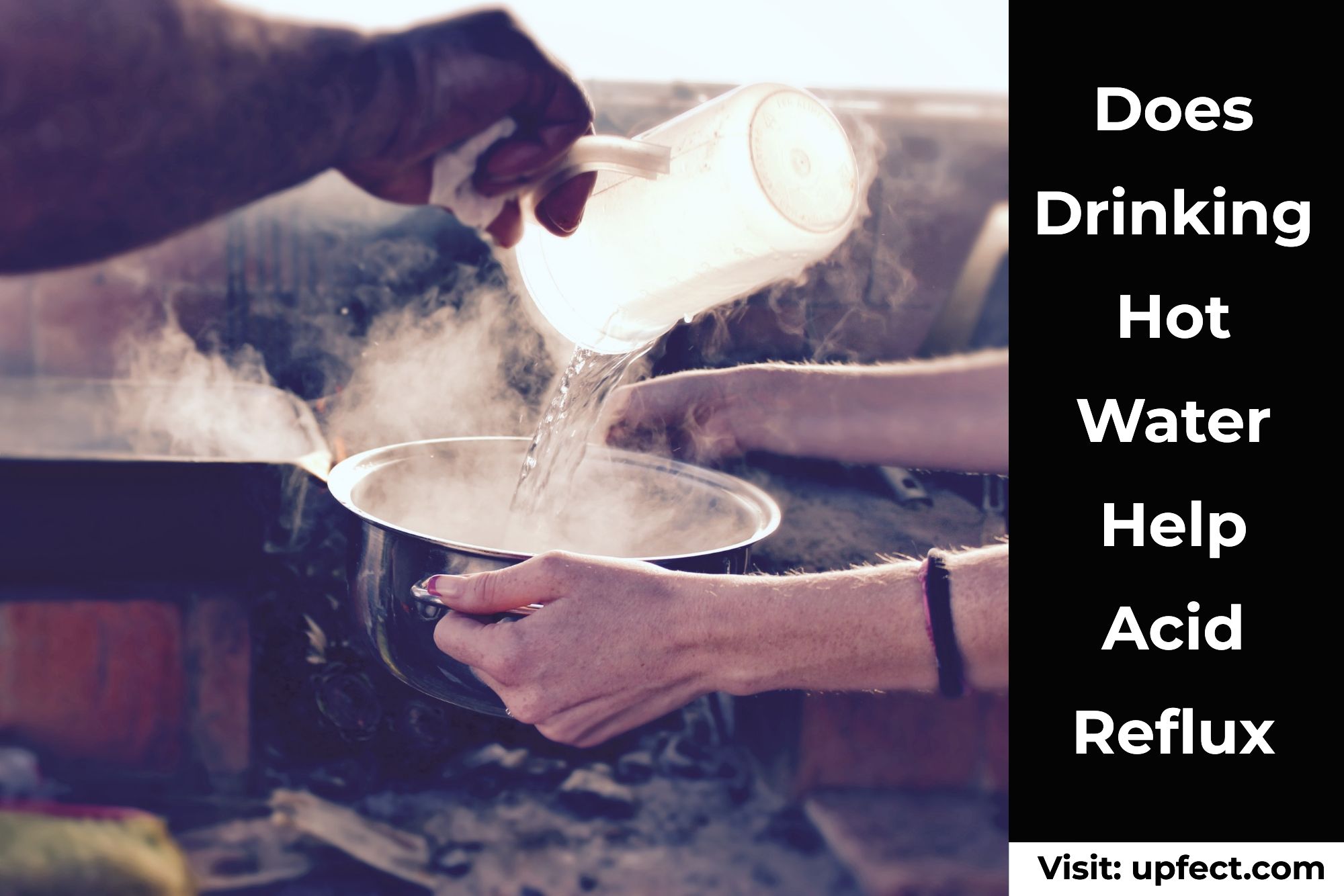
Drinking Hot Water Help Acid Reflux
Water heating is a heat transfer process in which water is heated from its normal temperature to a higher temperature referred to as hot water. Depending on the hot water usage, the temperature may vary. Hot water can be drunk in different ways like mixing it with coffee, or tea. Besides, drinking hot water can make the body fresh and energetic throughout the day.
Symptoms of acid reflux
Acid reflux symptoms may be an indication that your esophagus has become irritated by stomach acid. Stomach acid can then damage the lining of your esophagus and cause bleeding. In the long term, this can potentially change the cells of the esophagus and lead to cancer.
Heartburn: Heartburn in your chest that often starts after eating, especially after a heavy meal or after lying down.
Regurgitation: Experience feeling acid back up in your mouth or throat.
Difficulty swallowing: the sensation of food sticking in the throat or chest.
Chest Pain: Chest discomfort can sometimes be mistaken for a heart attack.
Nausea: You may feel sick to your stomach or feel the urge to vomit.
Sore throat: A hoarse or hoarse voice or a burning sensation in the throat.
Dry Cough: A persistent cough that does not produce mucus.
What causes acid reflux?
When stomach acid leaks back into the esophagus, the tube that transports food from the mouth to the stomach, acid reflux develops. When the lower esophageal sphincter (LES), a muscular ring at the bottom of the esophagus, malfunctions, stomach acid may travel up into the esophagus.
The emergence of acid reflux might be attributed to a number of circumstances. Among the most frequent causes are:
Hiatal hernia: As the upper portion of the stomach pushes through the diaphragm and into the chest cavity, the LES is under pressure and becomes weak.
Diet: Certain meals, including fatty or spicy foods, chocolate, coffee, and alcohol, may cause acid reflux by relaxing the LES or boosting the production of stomach acid.
Obesity: Carrying extra weight or being obese may exert pressure on the abdomen, pulling the stomach forward and opening the LES, allowing acid to flow back into the esophagus.
Smoking: Smoking might increase the production of stomach acid and damage the LES.
Acid reflux during pregnancy may result from pressure from the expanding uterus on the LES and stomach.
Aspirin and other no-steroidal anti-inflammatory medicines (NSAIDs) are among the medications that might irritate the stomach and cause acid reflux.
Stress: Stress may increase the production of stomach acid and promote muscular tension, both of which can impact how well the LES works.
Does Drinking Hot Water Help Acid Reflux
Acid reflux is caused when stomach acid flows up into the esophagus, causing irritation and discomfort. Drinking hot water works as a great way to clear the esophagus of acid and can help reduce irritation, which can relieve some symptoms of acid reflux. Drinking water can help dilute stomach acid and maintain a proper electrolyte balance in the body, which makes it less irritating to the esophagus.
For our overall health and well-being, it is very important that we drink enough water every day. Along with understanding what foods and drinks to avoid preventing acid reflux, simple solutions like drinking a cup of warm water to flush acid from the esophagus can provide some relief.
Drinking hot water benefits
Hydration
Staying hydrated is very important to maintain overall health and well-being. It can be easier to do when you drink hot water, which can also keep your body hydrated. This is important if you live in a hot area or are physically active and sweat a lot. If you are pregnant or breastfeeding, engage in strenuous activity, or work in a hot environment, you need even more water.
Drinking hot water Helps with weight loss
Hot water can provide some benefits to overall health and hydration. One of the best ways to lose weight is to start your metabolism with a glass of warm water and lemon in the morning. Warm water in the morning helps to speed up the body’s metabolism and burn fat throughout the day. Drinking hot water also helps remove waste from the body, which can cause bloating and excess water retention.
Water intake strongly reduces dietary energy intake (EI) in middle-aged and older adults. When combined with a hypocaloric diet, drinking 500 mL of water before each main meal resulted in greater weight loss in middle-aged and older adults than a hypocaloric diet alone.
Drinking plenty of water is usually motivated by weight loss procedures and is considered healthy; however, few systematic studies address this concept. Researchers found that drinking 500 ml of water before a meal increased metabolism by 30 percent. The increase occurred within 10 min and reached a maximum after 30–40 min.
Drinking hot water Digestion
Drinking hot water can help break down food faster by stimulating the digestive system. If you struggle with constipation or other digestive disorders, this can be extremely beneficial. Also, some people find that drinking hot water after a meal can help with digestion.
Warm water can have a favorable effect on bowel movements and gas emissions after surgery. It further showed that consumption of warm water in the fourth postoperative hour significantly reduced the duration of first flatus expulsion and had a favorable effect on bowel movements.
Drinking hot water Detoxification
Drinking hot water can aid in detoxification by helping to remove waste products and toxins from the body. It can help the kidneys and liver, which are in charge of removing waste and toxins from the body. Also, some people find that drinking hot water with lemon or other detoxifying ingredients will help the body’s natural detoxification processes even more.
Habitual water supplementation after awakening and before bedtime is not effective in reducing these levels in healthy subjects with slightly elevated fasting blood glucose levels. However, it represents a safe and promising intervention with the potential to lower blood pressure, increase body temperature, dilute blood waste products, and protect kidney function. Thus, increasing daily water intake can provide several health benefits.
Pain relief
Warm water can help ease muscle and joint pain and possibly ease period cramps. This is because heat can help increase blood flow to the injured area, which can help reduce swelling and promote healing. Drinking hot water can provide some relief from internal discomfort, but it’s important to remember that heat can make swelling worse.
Abdominal discomfort is a common complaint among women who have their first period. These symptoms can be adequately treated by drinking water. This is due to the pain-relieving effects of hot water.
Drinking hot water Respiratory Health
Drinking hot water can help loosen mucus and phlegm, making breathing easier and reducing the risk of respiratory infections. This is because heat has the potential to break up mucus and facilitate its removal from the body. Hot water is a great all-natural cure for colds, coughs, and sore throats. It may also provide relief from a sore throat. It also helps in relieving nasal congestion. Increasing your water intake may help reduce symptoms like headaches.
Reduced stress
Drinking warm drinks such as tea or hot water with lemon can have a calming effect on the body and help reduce stress. A cup of hot water can help people manage stress and anxiety.
Increasing water intake has beneficial effects on LOWs, particularly sleep/wakefulness, whereas low water intakes have detrimental effects on HIGH’s mood.
A previous study found that drinking hot beverages like tea and coffee can help reduce tension and anxiety.
How to relieve acid reflux
These are a few techniques for reducing acid reflux:
- Change your diet and stay away from fatty, fried, spicy, or acidic meals, chocolate, coffee, alcohol, and carbonated beverages that cause acid reflux.
- Eat more often and in smaller portions throughout the day as opposed to larger meals to aid with acid reflux symptoms.
- Wait at least 2-3 hours after eating to lie down or go to bed to avoid laying down.
- Employ a wedge cushion or raise the head of your bed by 6 to 8 inches as you sleep to stop stomach acid from running back into your esophagus.
- Gum chewing may aid to boost saliva production, which can help to neutralize stomach acid after meals.
- These medications may help reduce the symptoms of acid reflux by neutralizing stomach acid.
- Avoid wearing tight clothes since it may put pressure on the stomach and create acid reflux, particularly around the waist.
- Using relaxation methods like deep breathing, yoga, or meditation may help lower stress levels since stress can make acid reflux symptoms worse.
Drinking hot water Acid reflux treatment at home
Here are some natural remedies for acid reflux that you can try at home:
Acid reflux can be triggered by certain foods, including fatty or spicy foods, chocolate, coffee, and alcohol. Try to stay away from these foods as much as possible. Water may help drain acid out of the esophagus, so drink enough of it.
Studies have shown that licorice root, ginger and chamomile teas can help reduce acid reflux symptoms. To check whether they work, you might try consuming ginger tea, chamomile tea, or licorice root pills.

What foods help acid reflux go away fast?
Although there are certain meals that might help reduce acid reflux symptoms, it’s essential to remember that every person’s body is unique and may respond to some foods in a different way. Also, it’s crucial to get medical counsel from a healthcare provider if you often or severely have acid reflux symptoms.
The following foods are said to help reduce acid reflux symptoms:
Ginger: Ginger has anti-inflammatory qualities and may help lessen symptoms of acid reflux. Use ginger pills, sip ginger tea, or try adding ginger to your meals.
Low-acid foods like oatmeal may help balance stomach acid and calm the esophagus.
Bananas: By covering the lining of the esophagus and stomach, this low-acid fruit may help reduce the symptoms of acid reflux.
Melons: Low-acid fruits including cantaloupe, honeydew, and watermelon may lessen the symptoms of acid reflux.
Non-citrus foods: Low-acid fruits including apples, pears, and peaches may help lessen the symptoms of acid reflux.
Vegetables: Non-starchy vegetables with little acid content, such leafy greens, broccoli, cauliflower, and asparagus, may aid with acid reflux symptoms.
Lean proteins: Low in fat and perhaps simpler for the body to digest, lean proteins like chicken, turkey, fish, and tofu may lessen the probability of acid reflux symptoms.
Also, it’s crucial to stay away from things like spicy or fatty meals, citrus fruits, tomatoes, chocolate, mint, and caffeine that might cause acid reflux symptoms or exacerbate them.
What tea is good for acid reflux?
By lowering esophageal irritation and inflammation, some teas may help treat acid reflux symptoms. Some of the teas listed below are beneficial for acid reflux:
Ginger tea: Ginger tea helps ease the digestive tract and has anti-inflammatory capabilities.
Tea made from chamomile: Chamomile is a natural sedative that may assist to lessen digestive system discomfort.
Tea made from licorice root: The lining of the stomach and esophagus can be soothed and protected with licorice root.
Green tea: Green tea has anti-inflammatory and digestive-improving antioxidants.
Fennel tea: Fennel has digestive and anti-inflammatory properties, making it a perfect choice for those suffering from acid reflux.

